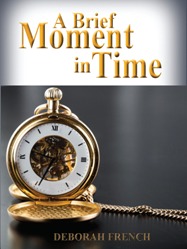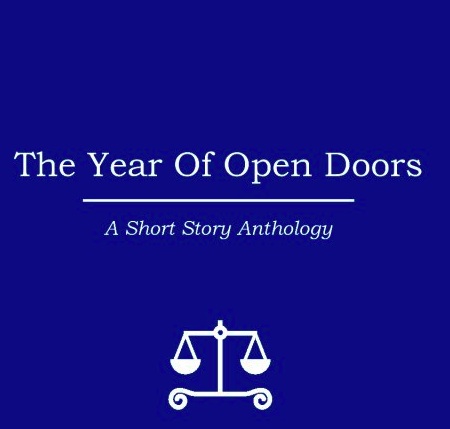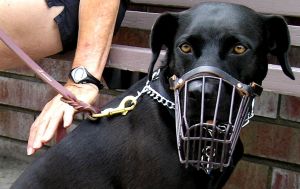//
//
Deborah French is the author of A Brief Moment in Time, a memoir chronicling her experience of raising two children with special needs. A review of the book can be found here, and the link to it on Amazon can be found at the end of this interview.
How did the start of the book come about? Did you decide it was time to tell your story, or did someone else prompt you?
I introduced myself to ASD Publishing in a submissions email for my children’s book. I received an almost immediate response asking me to consider writing down my personal journey and sending a manuscript back to them for consideration. I remember reading the email with a quizzical brow thinking ‘Seriously, could I do this?’ I have always loved writing and had dreams of becoming an author as a teenager, so I asked my husband for the laptop, sat down and wrote Chapter 1, The Moment. And that was it.
The book is such a beautiful insight into your life and covers truly sensitive issues that I found I needed to read it slowly; digesting the information and reality of the situation as I went. Did you find it very difficult to write, retracing each moment and did you have to take it slowly?
The first three chapters were written within a few hours. I was surprised at the speed at which I was able to retrace my steps because up until that point, of course I had recalled the emotional trauma of birth but had yet to take that journey so intimately again. I was also aware that as I was reliving those first few days, I was about to share my story and my most shameful feelings with the world, that fact was overwhelming and frightening. Once I had I passed the first hurdle however and I was able to re read the first chapters without sobbing, everything flowed very smoothly from then on. Those moments of my life had been bottled up for a long time; once I began to write I couldn’t stop.
You’ve constructed a very natural narrative, following your life chronologically. Did you sit down and simply let the story flow, or did you plan out how you would write it?
Once I had made the decision to write my story I felt the only appropriate place to start was from the day I walked into the hospital to give birth to Amariah. From then on I didn’t plan to tell my story chronologically, it just worked out that way because I was able to explain my emotional development more accurately through each experience.
Your writing is very honest and really helps the reader to connect with your experiences, but was there anything that you wanted to include and couldn’t because of time or space constraints?
I could have certainly continued on but as you have described it takes some time to digest the information and the reality of the situation. It was important to find the right balance. I didn’t want to overwhelm the reader, I wanted to make sure that by the end of the book they could connect with the sense of happiness and contentment that we feel despite our circumstance. This was an important point for me to drive home.
I was surprised by the move to Israel and very interested to learn about the help that is available there.
What prompted this move? Primarly we moved because we were advised to live in a hotter climate for sake of Amariah’s health. During those early years she was plagued with chest, throat and sinus infections and the warmer climate has certainly helped with that. Secondly and most importantly, the facilities available to those with special needs is incredible. Amariah is only seen by a paediatrician during routine doctor visits through the regular health service. There are countless nurseries and schools for children with a range of special needs, both separate and integrated into the mainstream system. Therapies and after school programmes are readily available with free transportation from the council to and from our door step. There is also considerable emphasis on supported living and employment opportunities for adults with special needs, which is a consideration for all parents. The question of ‘what’s next?’ still keeps me up at night but I take comfort knowing that we are living in a society that thrives on how it cares for those less fortunate.
Throughout the book your focus is always on the children and their progression, but marriages have fallen through with much less pressure. How did you maintain your relationship and social life through it all?
My husband has an uncanny way of making me laugh, especially when I’m crying. He has often said that ‘If we don’t laugh about it then we will go nuts.’ And I agree with him. The challenges that we have faced have also never created an issue between us, our task has been to work on how we handle our own emotional pain and support each other in the way we both need.
As far as our social life goes, we enjoy as much private time as we do socialising with friends and family. We regard our social time as ‘taking a break’. Sometimes it’s hard to switch off from reality but there will always be something to worry about and time out is good for everyone.
Has the book and subsequent publicity had any effect on the school life of Henry and Amariah, such as raised awareness from friends or negative effects?
From the feedback that I have received so far, including your own review, I can see the effect my story will have on raising awareness. I have always said that ignorance breads fear which in turn breads intolerance and predjuidice. The more informed people are about children and adults with special needs the less they will fear them and the more society will accept those with disabilities. I hope that in some way my story will inspire more integration at a grass roots level between families, friends, teachers and their pupils. As far as Henry and Amariah are concerned, A Brief Moment in Time is merely an extension of these efforts, we work tirelessly everyday to inform those around them to ease their integration. It’s a working progress.
You keep busy with raising awareness for special needs and having activities for special needs children. Do you have any hobbies outside of that part of your life?
I love to cook. I have enjoyed hosting and entertaining our family and friends as well as running cookery demonstrations for adults and lessons for children. I believe that cooking is a life skill that all children should be taught from a young age. I have also run courses for children with special needs and have seen the improvements in their concentration and coordination whilst working towards the finished dish.
Apart from this I love to spend time with my husband and children relaxing and having fun experiences. We try to take time off from our hectic lives even for a short time just to get away and spend the day together. This is a very important part of my life.
How has the reaction to your book been so far, and has it differed from your expectations?
I anticipated that it would have an impact of some sort because birth is an experience anticipated by all and experienced by most and there is always a sense of fear that everything may not go according to plan. Even if the reader doesn’t have a child with a disability they will be automatically transported back to their own experience during the read and will connect with my experience.
In saying that, I could not have hoped for the response that I have received. I haven’t made so many people cry in such a short time in my life! It has been so wonderful to hear that our story has touched the hearts of so many people and, what’s more, I have been so delighted to hear that other mothers in similar situations have headed to my advice and reaped results with their children. I could not have hoped for more.
Do you have any plans for a follow-up to A Brief Moment in Time, telling readers what the experience is like as the children have got older, or how things are changing in a broader perspective for the special needs community?
I wouldn’t rule that out. I am currently developing other projects to help raise awareness through my writing for children with special needs and I have also completed a picture book to help prepare children on the autistic spectrum for their first day of school. So there are lots of directions to follow. I like to take one step at a time.





